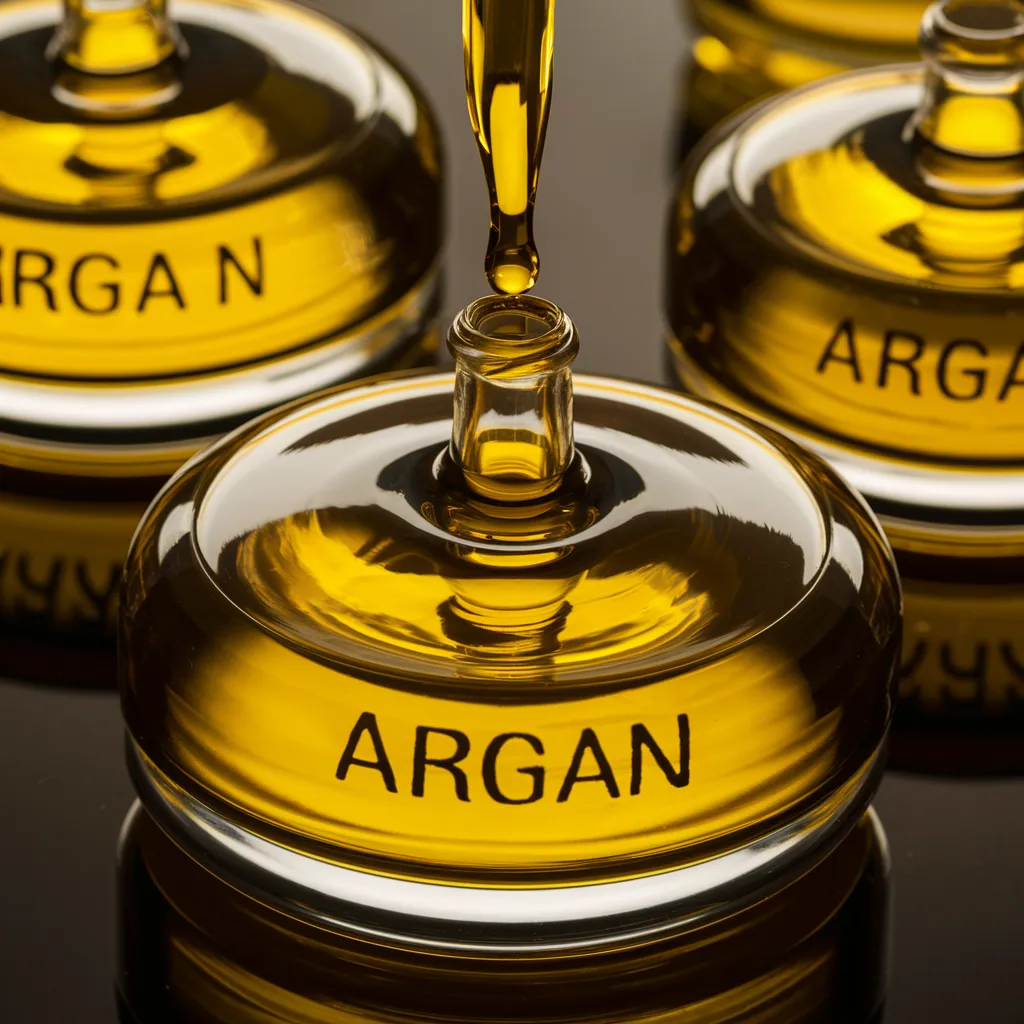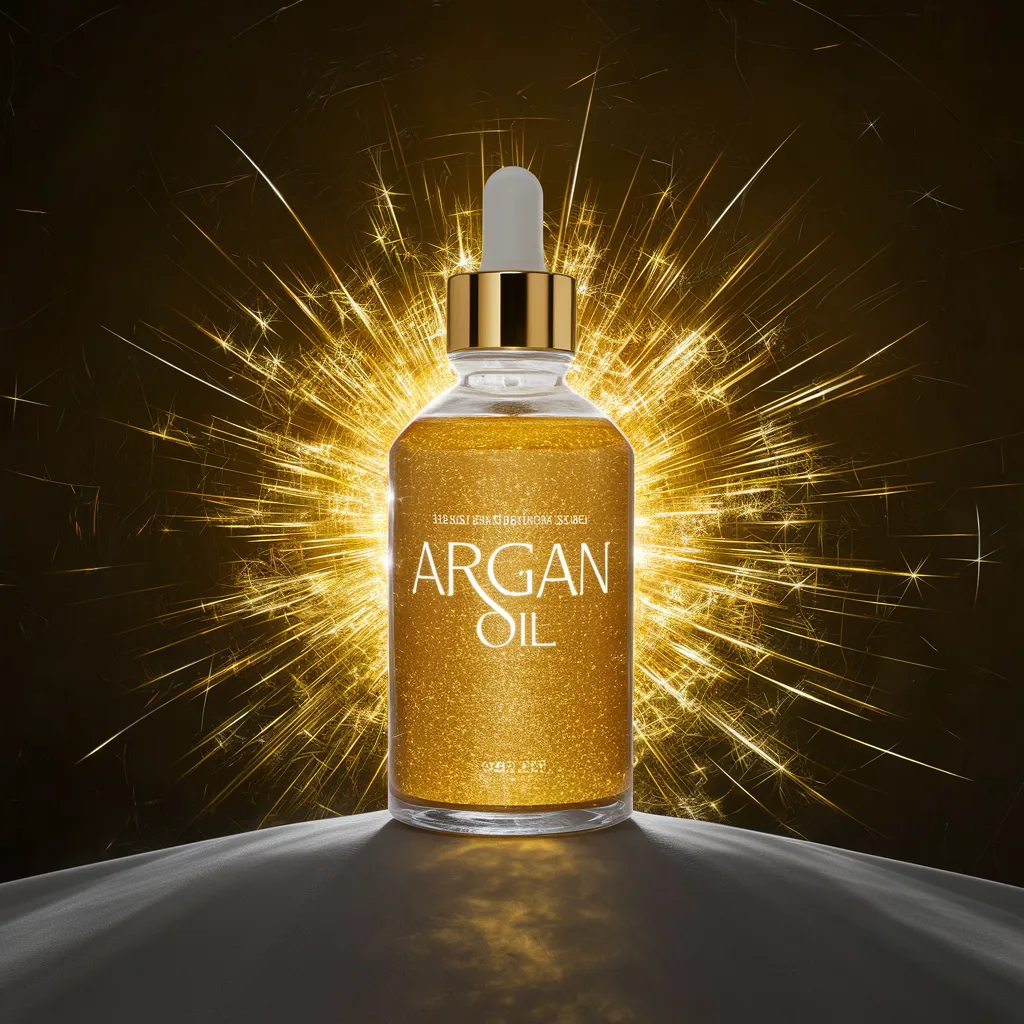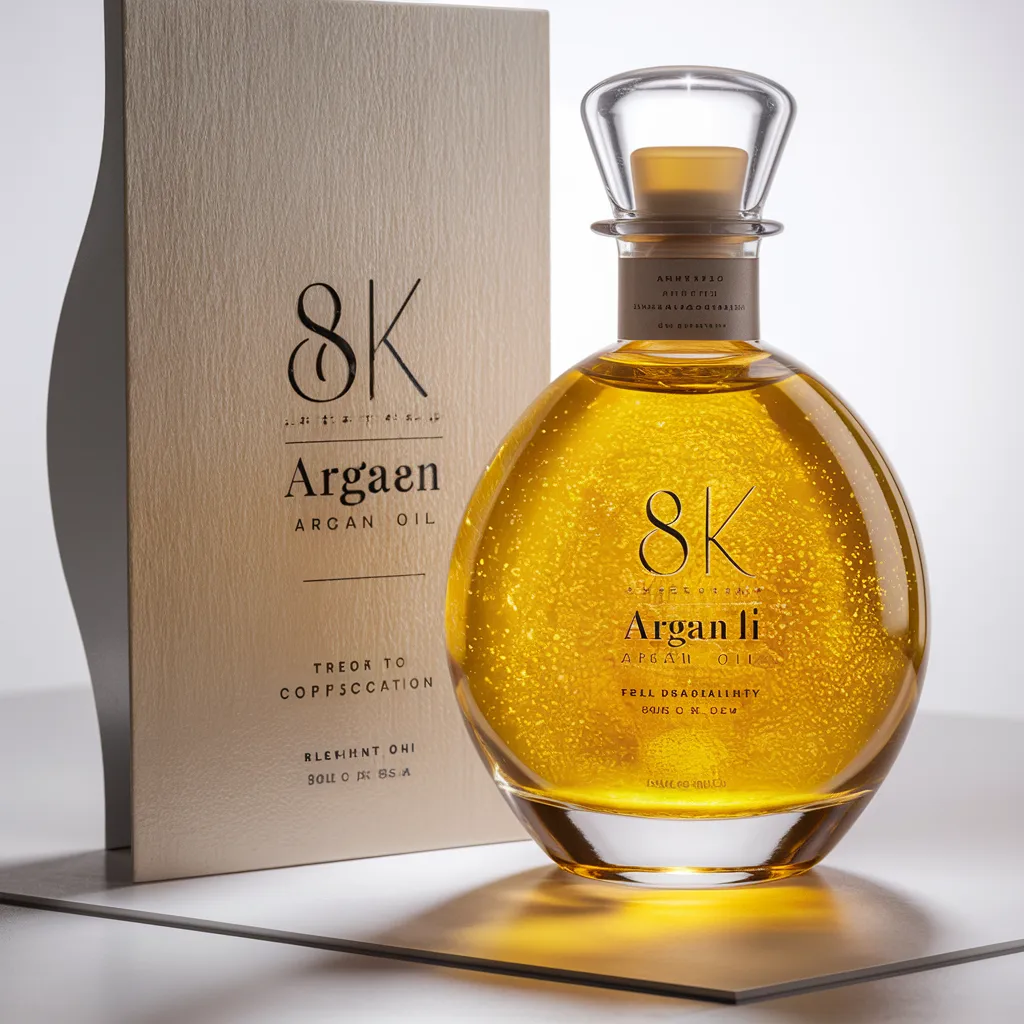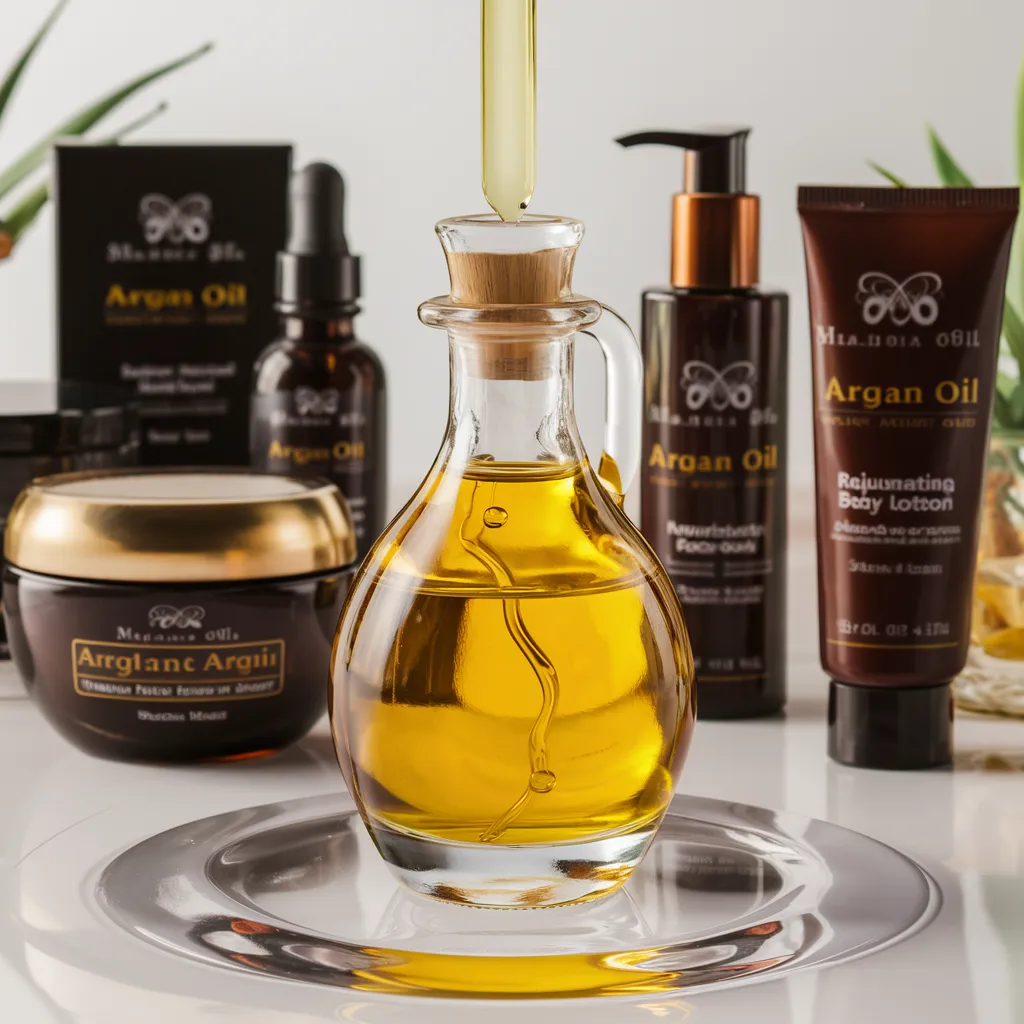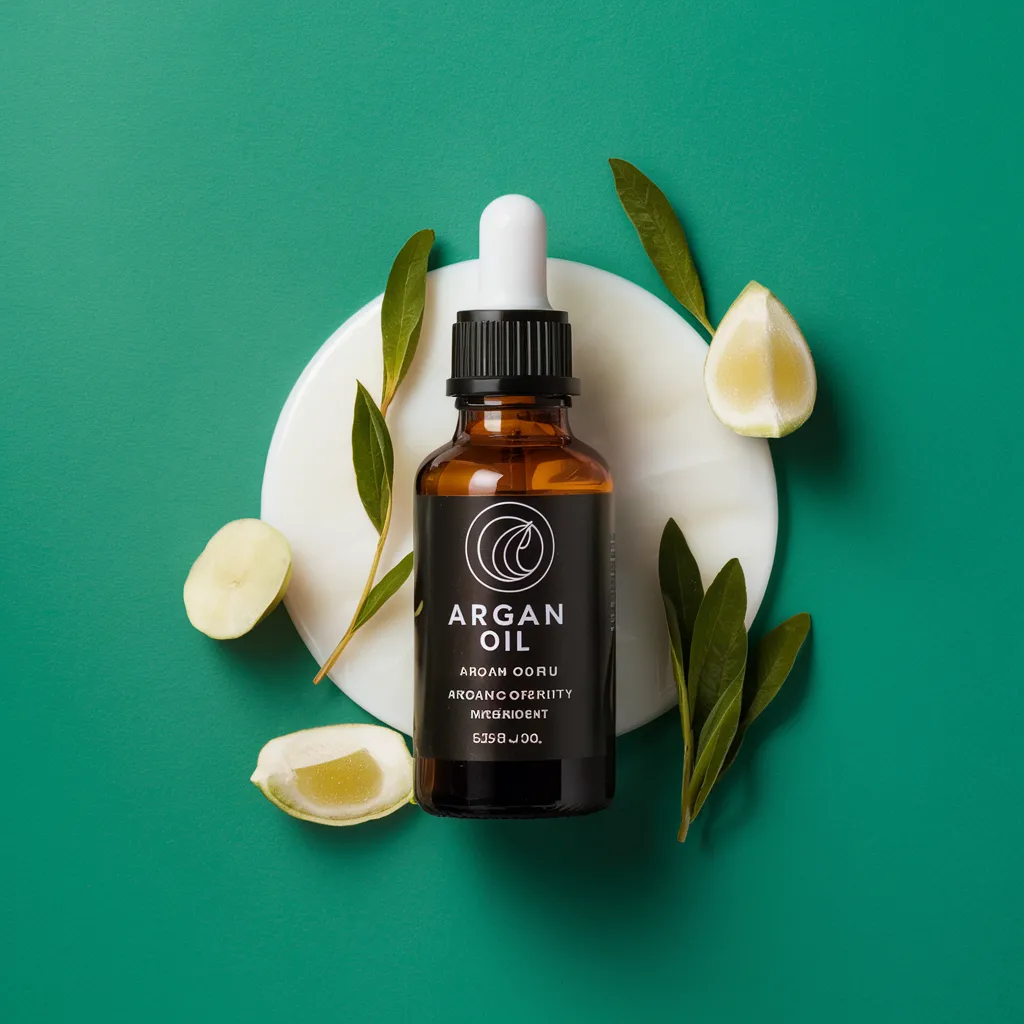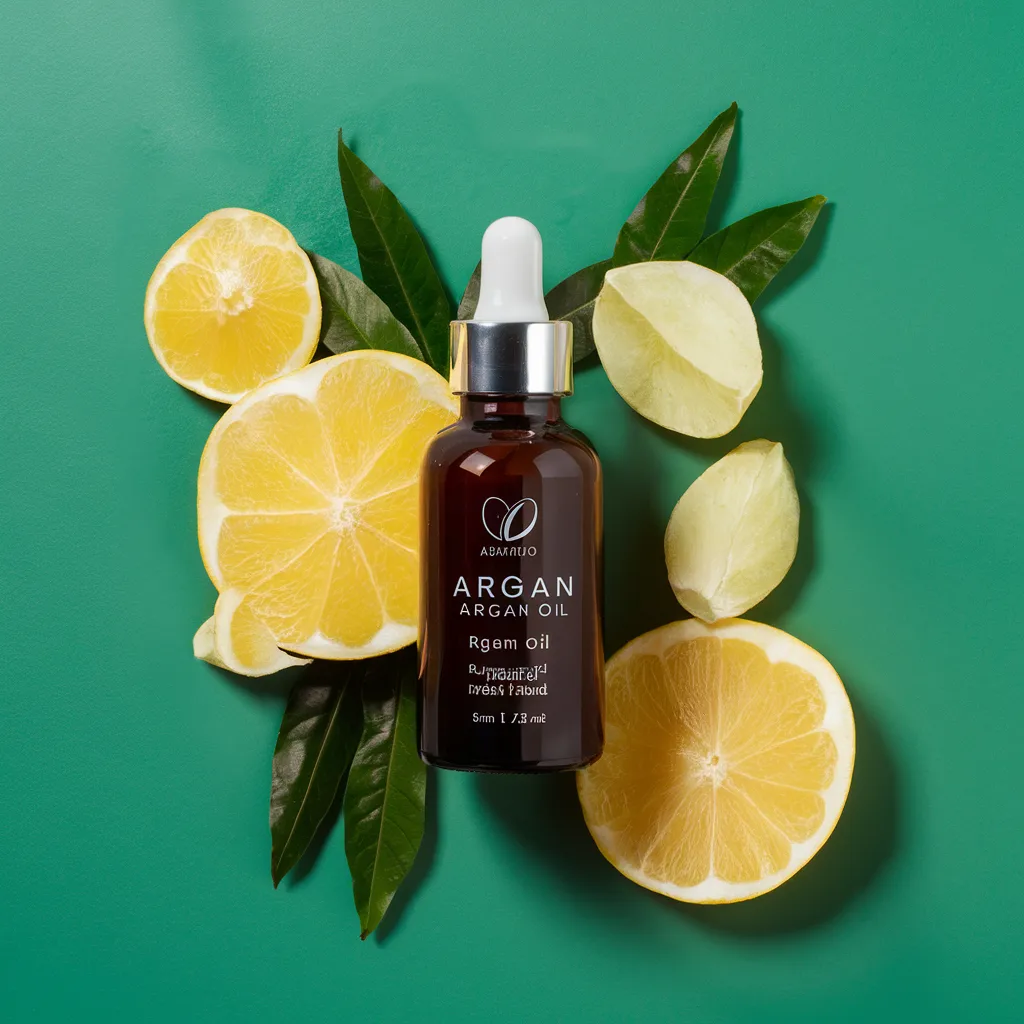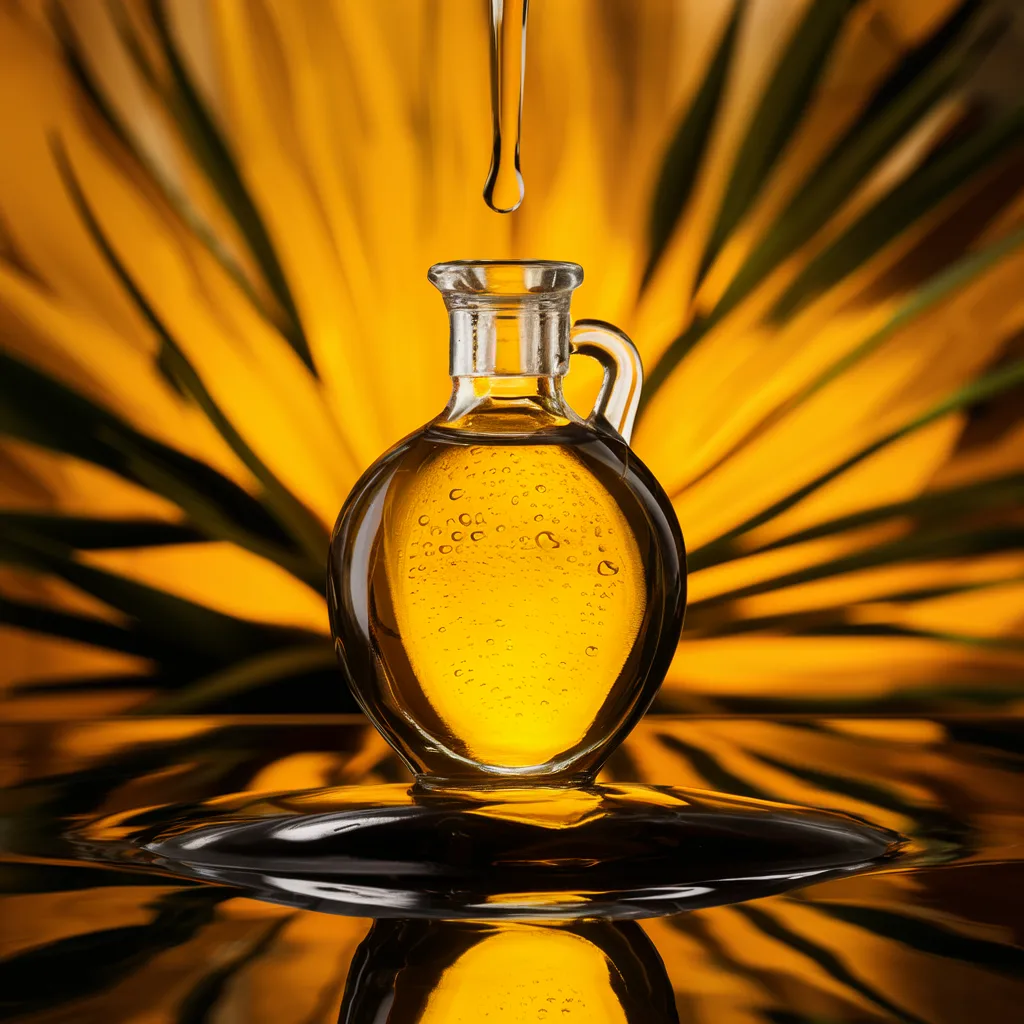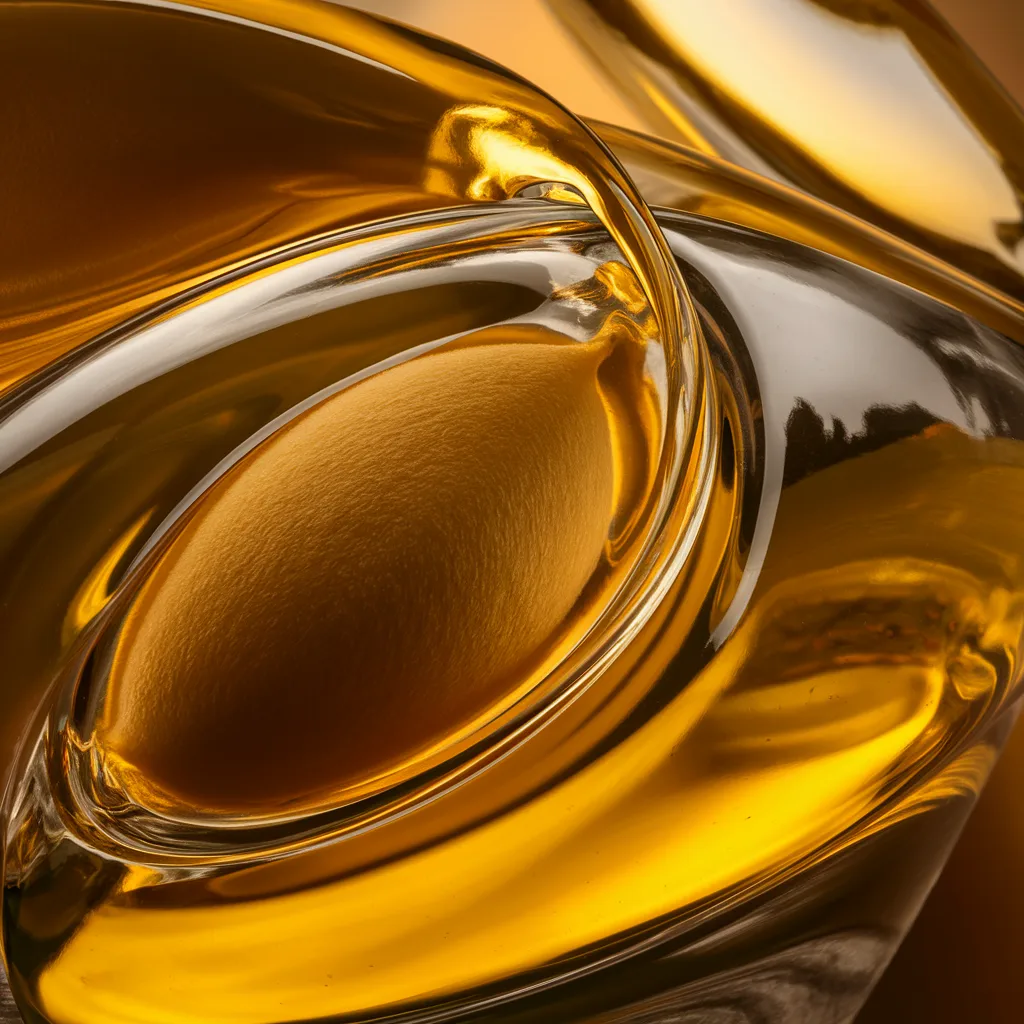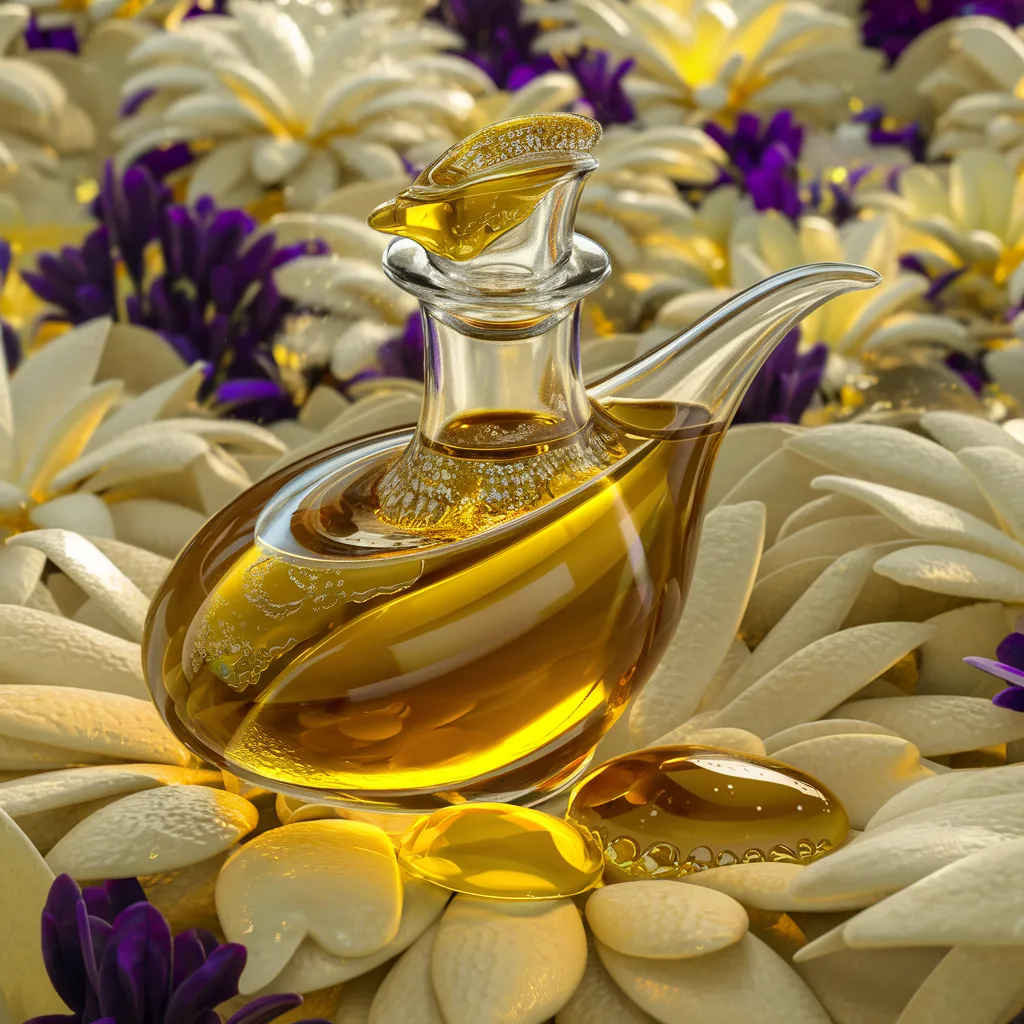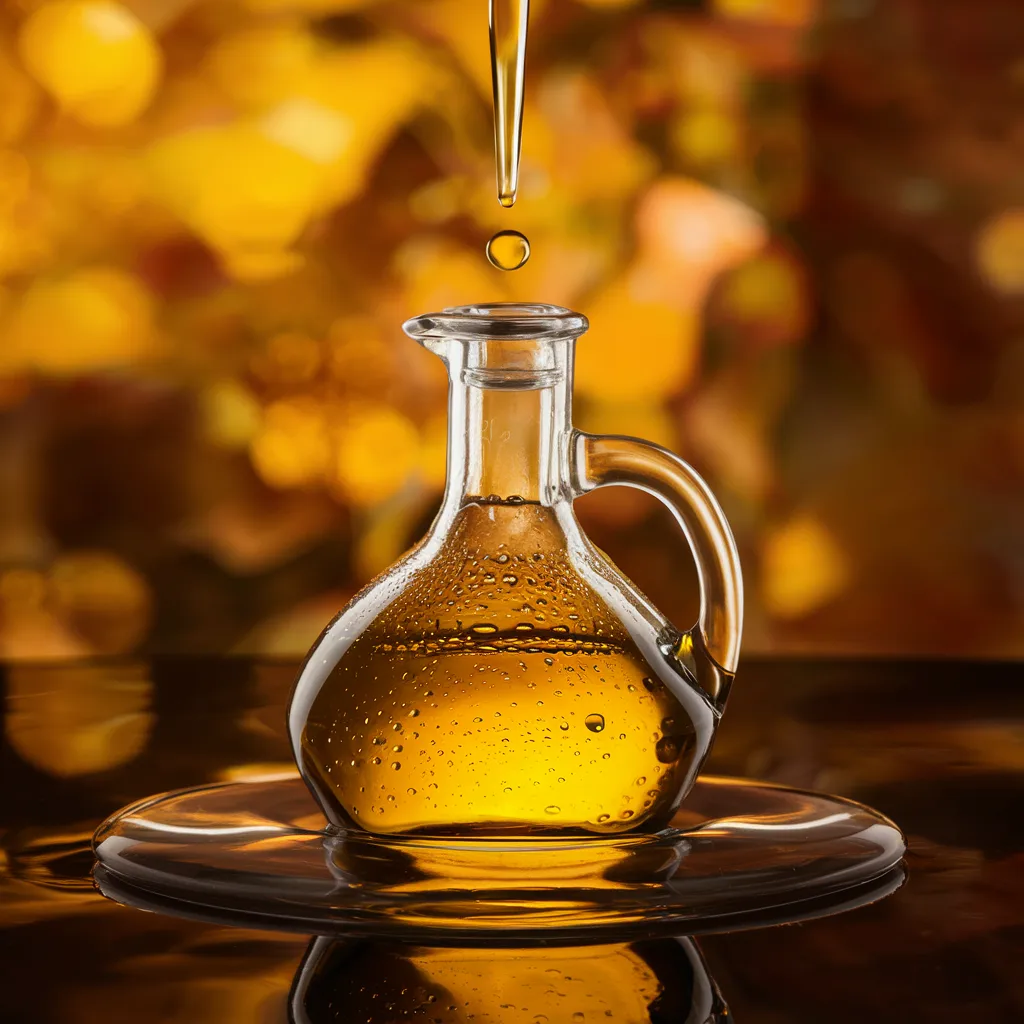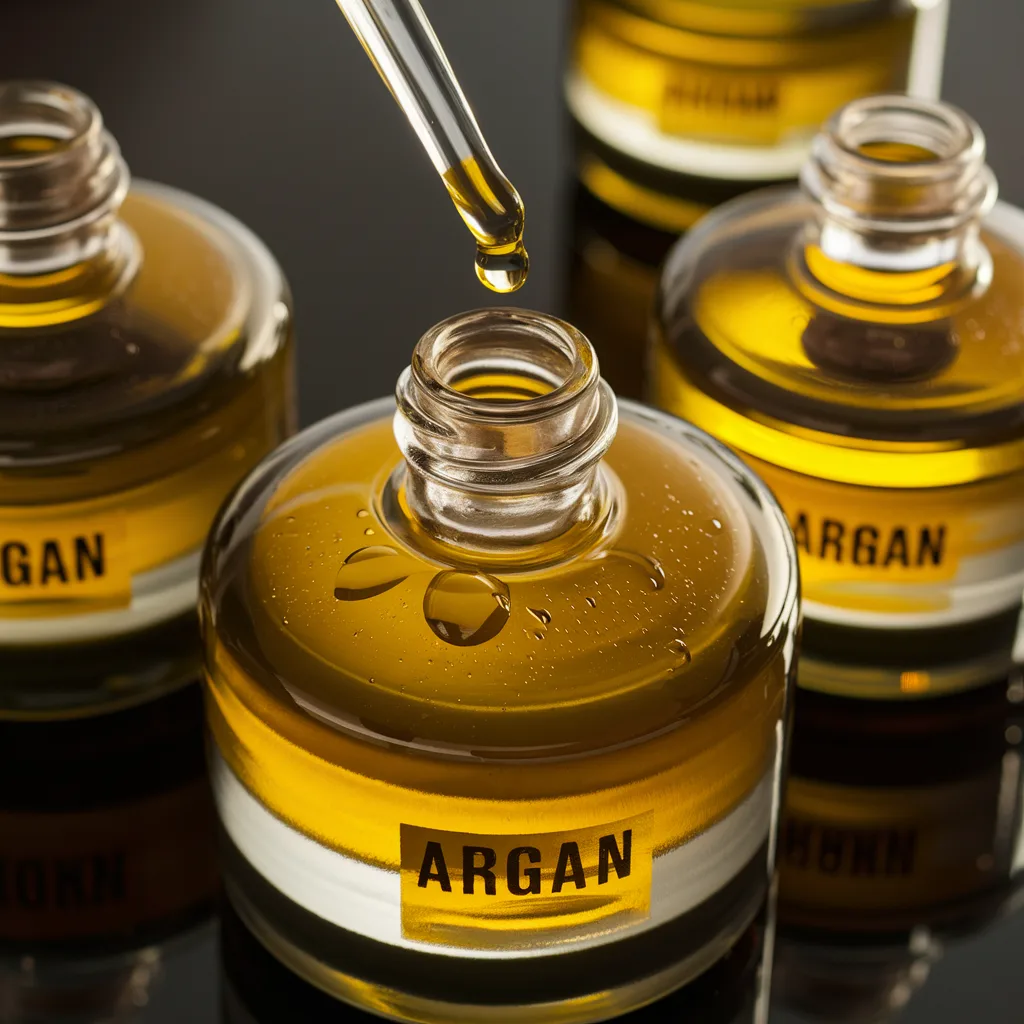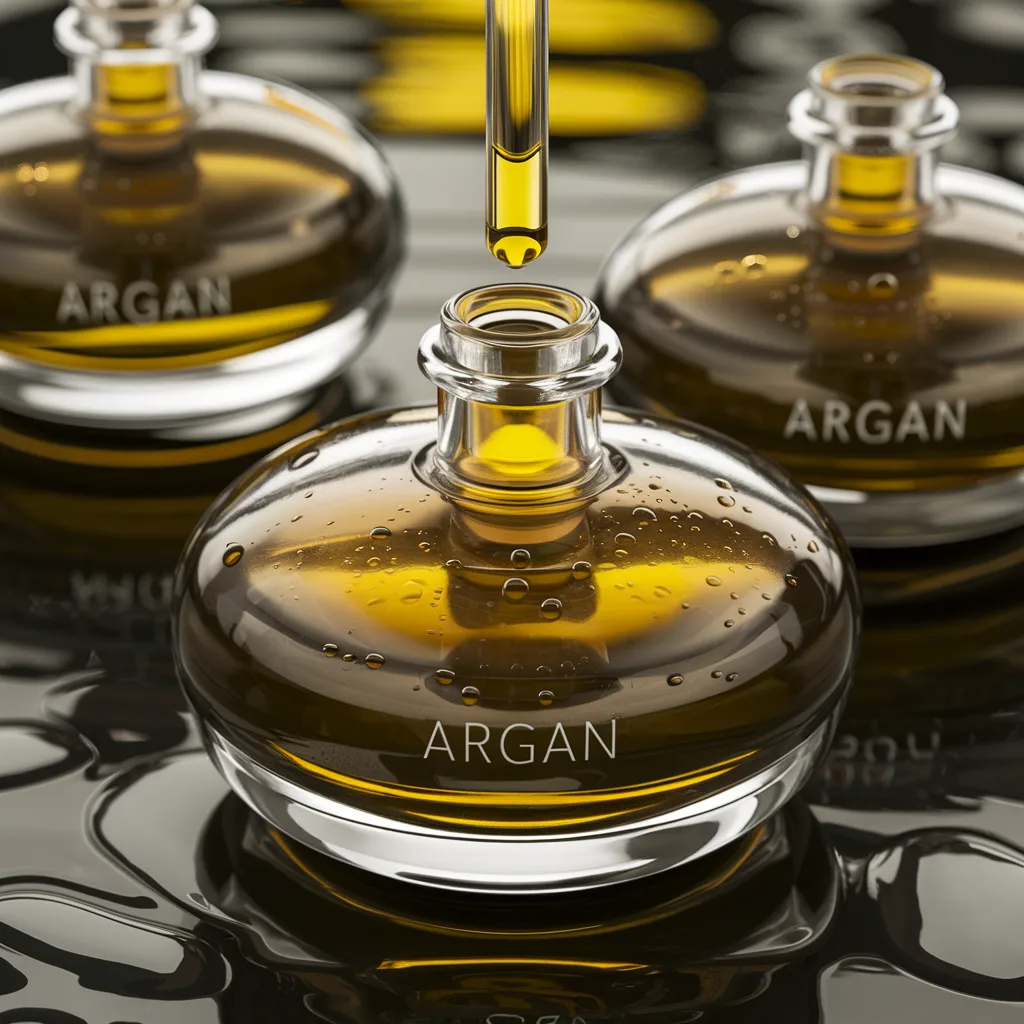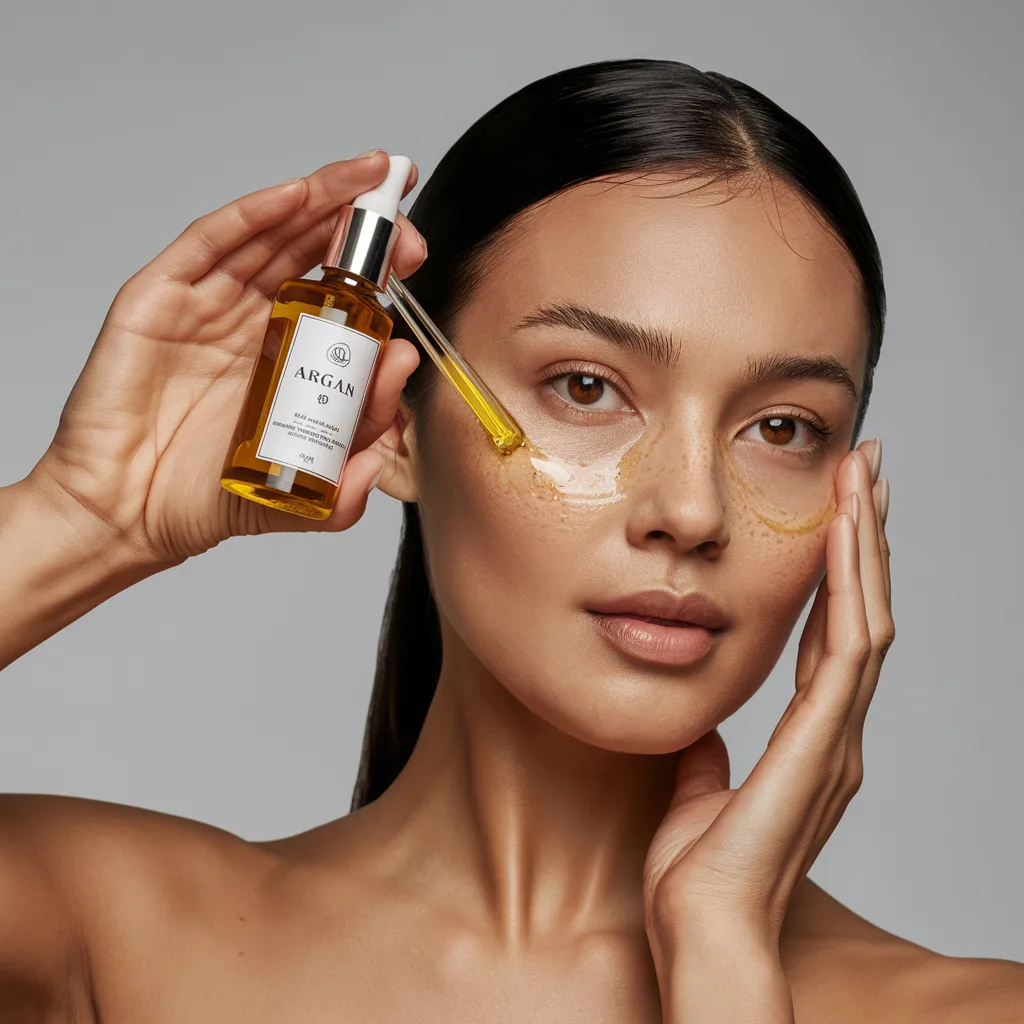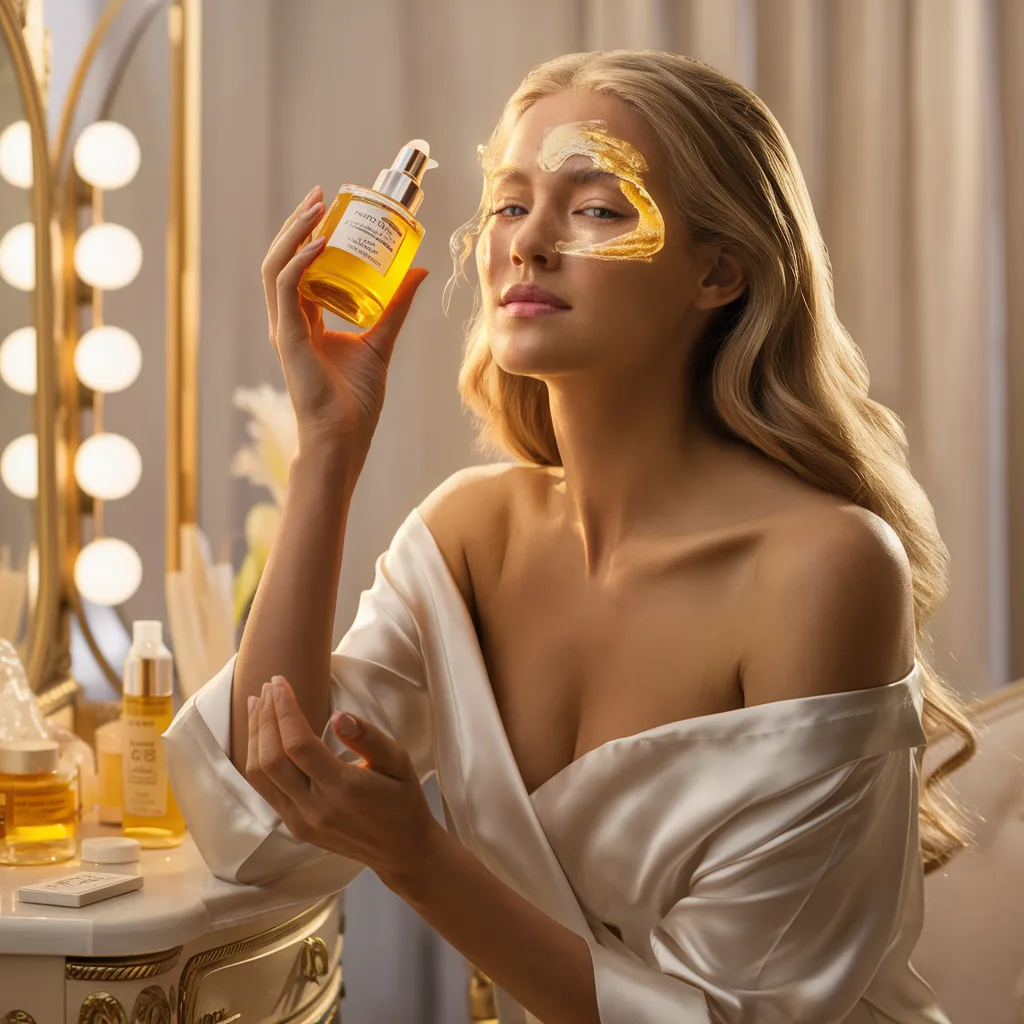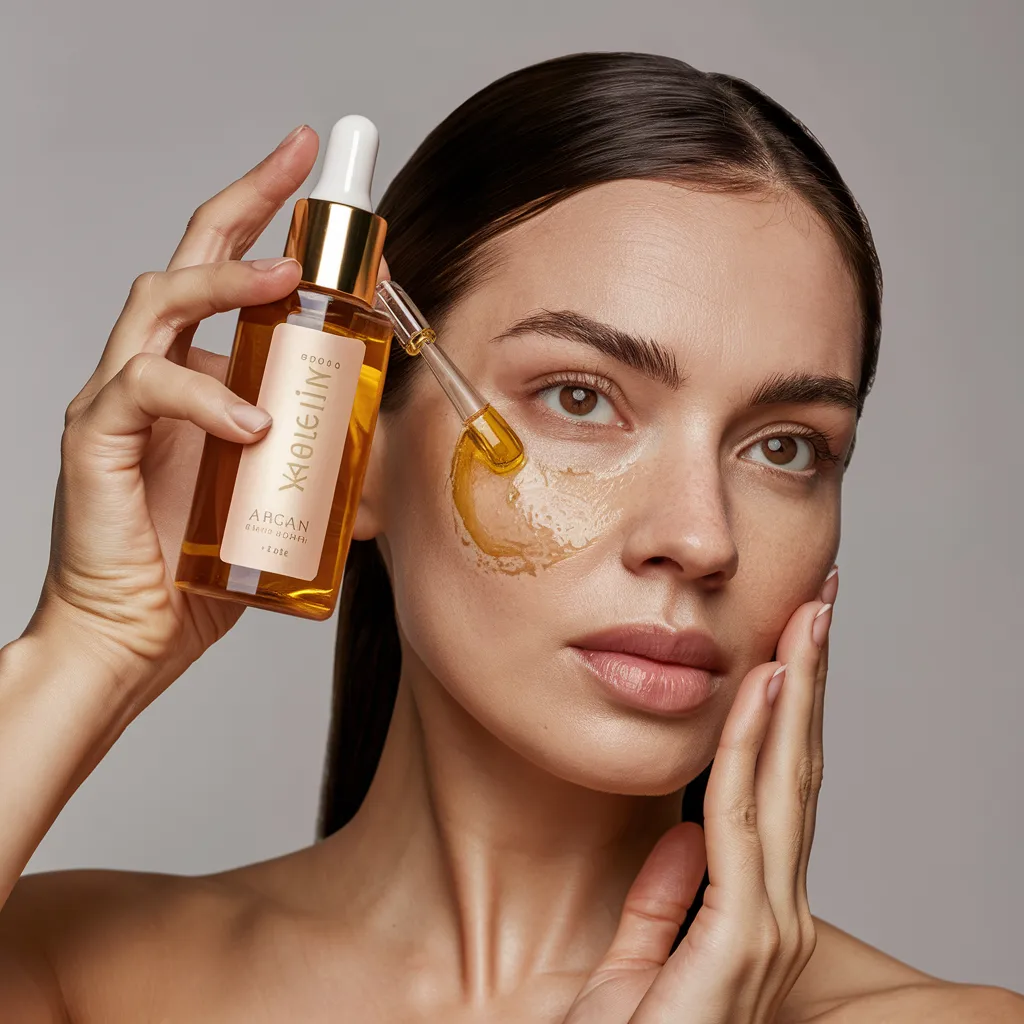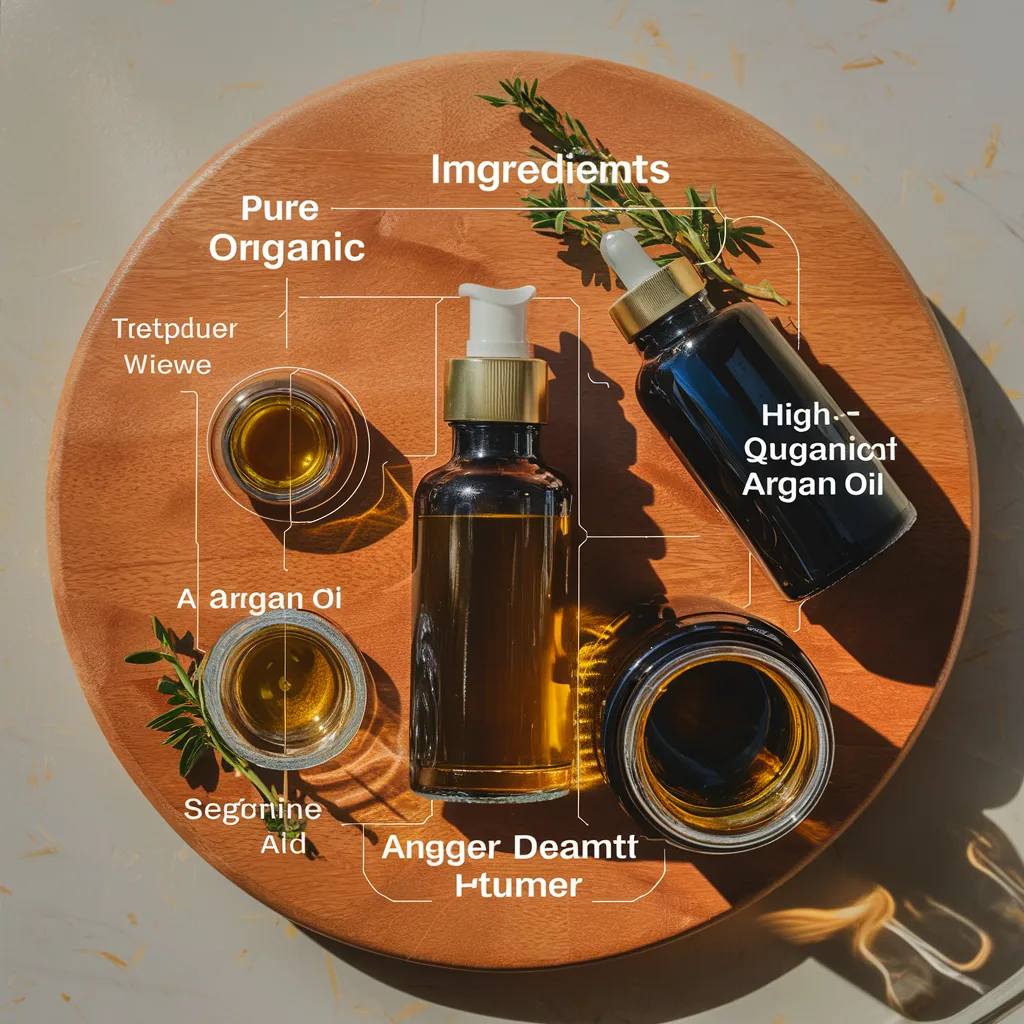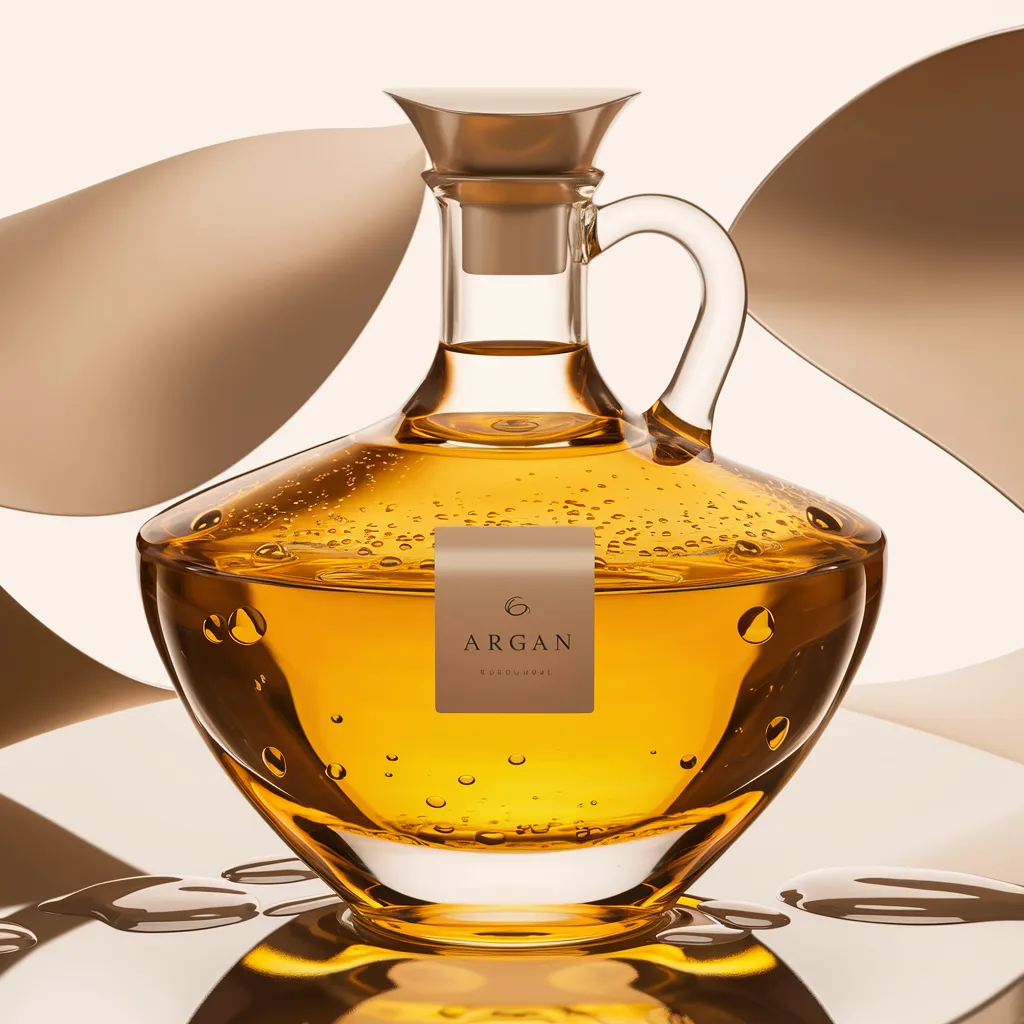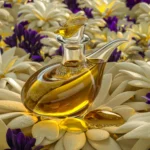What is argan oil?
Argan oil is a natural oil extracted from the kernels of the argan tree, which is native to Morocco.
The oil has been a staple in Moroccan beauty and culinary traditions for centuries.
Argan oil contains essential fatty acids, vitamin E, and antioxidants that nourish and hydrate the skin.
Where does argan oil come from?
Argan oil, referred to as “liquid gold,” comes from the kernels of the argan tree, which grows primarily in Morocco.
The unique tree thrives in the region’s semi-desert soil.
Extracting the oil involves cracking open the argan nuts to access the kernels inside. These kernels are cold-pressed to produce the precious oil.
Is argan oil effective? Read these Moroccan argan oil reviews
What are the benefits of argan oil for the skin?
Here are 10 benefits of argan oil for the skin;
- Deeply moisturizes the skin, providing long-lasting hydration.
- Helps to reduce the appearance of fine lines and wrinkles.
- Rich in antioxidants, which help protect the skin from environmental damage.
- Absorbs quickly into the skin without leaving a greasy residue.
- Soothes and calms irritated or inflamed skin, making it great for sensitive skin types.

- It helps to balance oil production, making it suitable for dry and oily skin.
- Improves skin elasticity, promoting a more youthful appearance.
- Minimizes the appearance of scars and stretch marks over time with regular use.
- Supports overall skin health by nourishing and replenishing essential nutrients.
- Argan oil is, at times, used as a natural remedy for various skin conditions such as eczema and psoriasis.
Is argan oil good for all skin types?
Absolutely! Argan oil suits all skin types. Whether you have dry, oil skin, combination, sensitive, or even acne-prone skin, argan oil can be your go-to solution.
Argan has a lightweight texture making it perfect for hydrating dry skin without feeling heavy or greasy.
Pure argan won’t clog pores, so even if you have oily or acne-prone skin, you can apply argan oil directly, and benefit from the oil’s moisturizing properties.
Can argan oil help with acne?
Argan oil helps with acne. Despite the oily nature, argan oil is non-comedogenic, meaning it won’t clog pores or exacerbate breakouts.
Instead, the seed oil regulates sebum production, helping to keep oily skin in check.
A 2016 study also confirmed the benefits of argan oil for wound healing.
The benefits of argan oil for acne scars
Does argan oil reduce wrinkles?
Argan oil helps reduce the appearance of wrinkles.
Packed with vitamin E and fatty acids, the oil hydrates your skin.
The antioxidants in argan oil help fight free radicals that contribute to premature aging.
Is argan oil good for dry skin?
Argan oil has nourishing properties.
The oil penetrates deep into the skin, providing intense hydration where it’s needed most.
Can argan oil be used as a moisturizer?
Argan oil makes for a fantastic moisturizer. The lightweight texture makes it super easy to apply, and it absorbs quickly into the skin, leaving it feeling hydrated and smooth.
Can argan oil be used around the eyes?
Argan oil is gentle enough to be used around the delicate eye area. Its non-greasy texture makes it perfect for providing hydration and addressing common concerns like fine lines and dryness around the eyes.
Using argan oil around the eyes helps to keep the skin moisturized, reduce the appearance of fine lines, and leave you looking rejuvenated.
A complete guide to using argan oil for eyes
Does argan oil clog pores?
Argan oil is non-comedogenic, meaning it won’t clog pores.
Its lightweight consistency allows it to absorb quickly into the skin without leaving behind a heavy or greasy residue.
Argan oil is suitable for all skin types, including oily and acne-prone skin.
You can enjoy the moisturizing benefits of argan oil without worrying about it causing any breakouts.
Does argan oil lighten skin?
Argan oil doesn’t have skin-lightening properties in the same way that other skincare ingredients, like hydroquinone do.
However, using organic argan oil on face helps improve overall skin tone and reduce the appearance of dark spots or hyperpigmentation.
The vitamin E and antioxidants in argan oil work to promote skin health and repair damage, which results in a more even complexion.
Everything you should know about argan oil for skin lightening
Is argan oil good for stretch marks?
Argan oil is touted as a natural remedy that you can use to treat stretch marks.
The hydrating and nourishing properties of argan oil helps improve skin elasticity and promote tissue repair.
When applied regularly to areas prone to stretch marks, argan oil keeps the skin moisturized, which minimizes the appearance of stretch marks over time.
How to use argan oil for stretch marks
Is argan oil non-comedogenic?
Yes, argan oil is non-comedogenic, making it a reliable skin care ingredient.
Pure argan won’t clog your pores, making it a great choice for all skin types, including oily or acne-prone skin.
Its lightweight texture lets it absorb quickly into the skin without leaving a greasy residue.
Here are the benefits of argan oil for oily skin
Can argan oil expire?
Yes, argan oil expires. Like any natural oil, argan oil has a shelf life of around 12 to 24 months from the date of opening.
For argan oil to last longer, store it in a cool, dark place, away from direct sunlight and heat.
In case your argan oil starts to smell off or rancid, it’s a sign that it has expired.
How to know if argan oil is pure?
To determine if your cosmetic argan oil is pure, check the following:
- Ingredients List: Check the label for the ingredient “100% Argania Spinosa Kernel Oil.” Pure argan oil has no additives, preservatives, or other ingredients.
- Smell: Pure argan oil has a subtle, nutty aroma. If it smells too strong or unpleasant, it means the oil is rancid or impure.
- Color: High-quality argan oil is golden yellow. If it’s too pale or too dark, it might not be pure.
- Texture: Pure argan oil feels smooth and non-greasy when applied to the skin. It absorbs quickly without leaving a heavy residue.
- Origin: Authentic argan oil comes from Morocco. Check the label for the origin of the oil.
Is argan oil safe during pregnancy?
Yes, argan oil is generally safe to use during pregnancy.
Its natural properties make it a gentle option for skincare, and it helps hydrate and nourish the skin during pregnancy.
Here is what you need to know about using argan oil during pregnancy
What does argan oil smell like?
Argan oil has a subtle, nutty aroma. It’s described as earthy, slightly sweet, and reminiscent of roasted nuts.
The aroma varies slightly depending on factors such as the quality of the oil and the extraction process used.
Can you use argan oil after microneedling?
Yes, argan oil is useful after microneedling.
The oil has soothing and hydrating properties, making it an excellent choice for post-treatment care.
Argan oil helps calm any redness or irritation and provides the necessary moisture to support the skin’s healing process.
Argan Oil vs Other Popular Carrier Oils
Argan oil has become a popular natural ingredient in haircare and skincare products. Here is how argan oil compares to other commonly used carrier oils;
Argan Oil vs Avocado Oil
Both argan and avocado oils are rich in vitamins A, D, and E, along with fatty acids.
Argan oil has a higher concentration of vitamin E and more unsaturated fatty acids.
Avocado oil has a thicker, more greasy consistency, while argan oil has a drier, more absorptive feel.
Argan Oil vs Coconut Oil
Coconut oil is beloved for its low molecular weight, allowing it to penetrate hair easily.
Argan oil has larger molecules that mainly coat the hair shaft.
Argan Oil vs Grapeseed Oil
Grapeseed oil is very lightweight and absorbs quickly into skin and hair.
Argan oil has a richer, thicker consistency that coats the hair cuticle to smooth frizz and add shine.
Grapeseed oil provides less conditioning than heavier argan oil.
Argan Oil vs Jojoba Oil
Jojoba oil is actually a wax ester that mimics sebum, so it penetrates deeply into hair follicles.
Argan oil’s larger molecules stay closer to the surface to smooth the cuticle.
Jojoba is lighter, while argan provides more intense conditioning.
Argan Oil vs. Olive Oil for Hair
Both oils deeply condition hair. The fatty acids in argan oil absorb easily without leaving a heavy residue, making argan a better option for fine to medium hair.
Argan oil vs moringa oil
Pure argan oil:
- Extracted from the kernels of the argan tree
- Rich in vitamin E and fatty acids, great for skin and hair
- Known for its moisturizing and nourishing properties
- Helps with hydration, reducing inflammation, and improving skin elasticity
- Used in skincare, haircare, and culinary applications
Moringa oil:
- Derived from the seeds of the moringa tree
- Packed with antioxidants, vitamins A and C, and fatty acids
- Lightweight and easily absorbed, suitable for all skin types
- Renowned for its anti-aging and rejuvenating effects
- Helps combat free radicals, promotes collagen production, and enhances skin radiance
Is Moroccan oil and argan oil the same?
Moroccan oil and argan oil are closely related, but they’re not the same.
Argan oil is a pure oil extracted from the kernels of the argan tree, which is native to Morocco. It’s known for its rich nutrient profile and is used in skincare, haircare, and culinary applications.
Moroccan oil, on the other hand, is a brand name that refers to hair care products containing argan oil as a key ingredient.
Moroccan oil may include other ingredients and additives. So, while Moroccan products feature argan oil, not all of the products are pure.
Does argan oil smell bad?
Nope, argan oil doesn’t have a bad smell. It has a nutty aroma, which many people find pleasant.
Argan oil is extracted from the kernels of argan trees and is used in skincare and haircare products.
So, if you’re worried about it smelling funky, don’t be! It’s actually quite mild and natural.
Can argan oil reduce wrinkles?
Argan oil contains vitamin E, which helps neutralize free radicals, leading to premature wrinkles. The oil contains fatty acids, including oleic and linoleic acids that hydrate and nourish skin. Hello, plump, smooth skin!
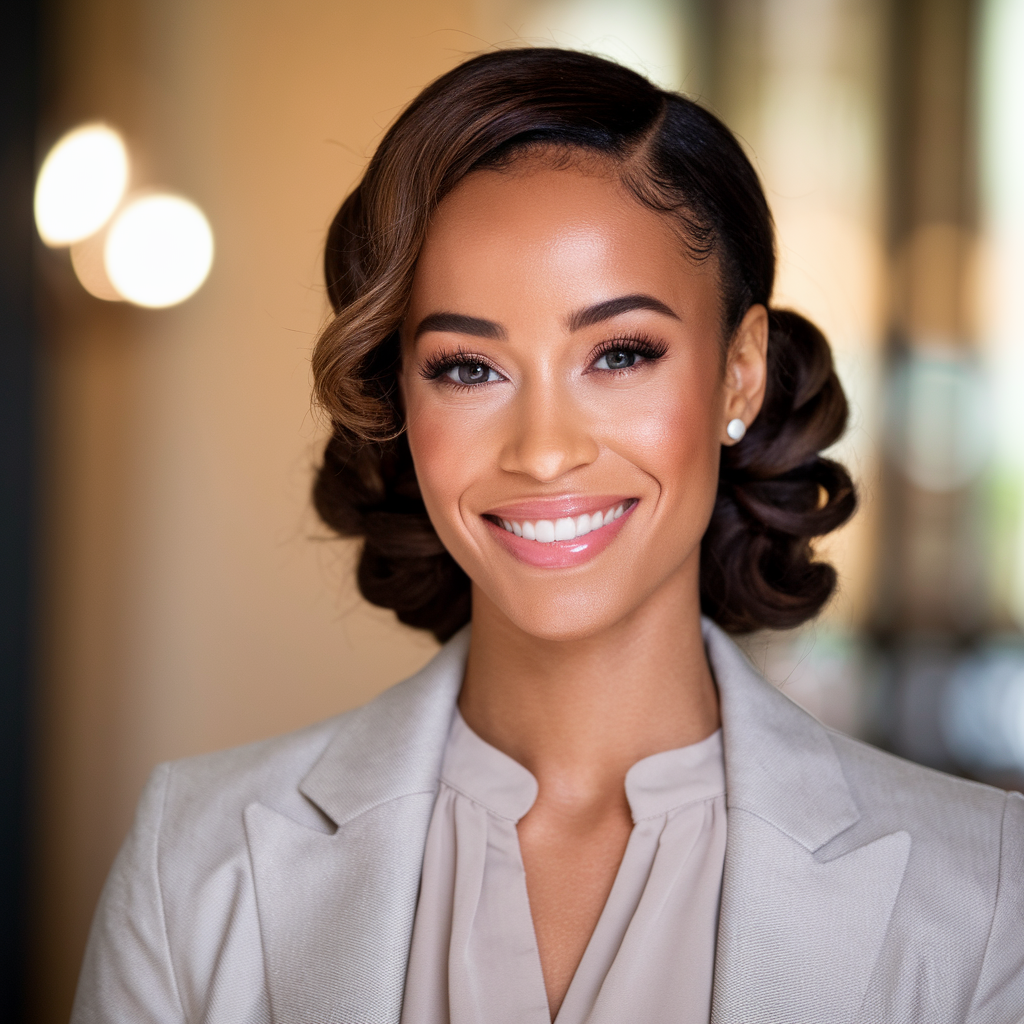
I’m a devoted organic skincare enthusiast, passionate about the natural, wholesome goodness that organic products bring to our skin.
Organic skincare isn’t just a hobby for me—it’s a lifestyle. Every product I use, recommend, and write about has been carefully chosen for its purity and effectiveness. Everything I write about is backed by scientific studies, dermatologists’ opinions, and user experiences.
I also excel at tackling skincare challenges with innovative, organic solutions.
